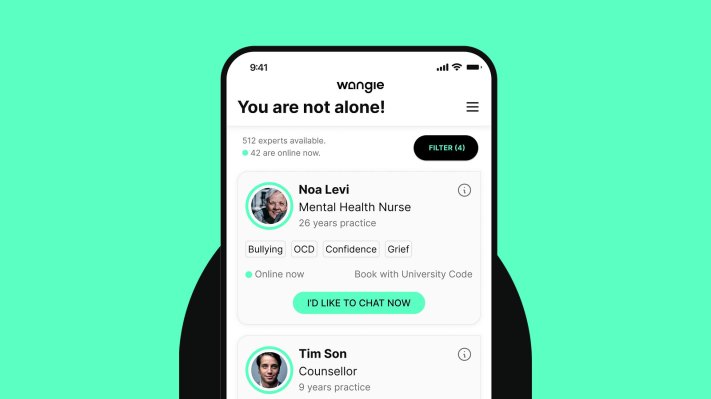It would be fair to say there’s no global solution for instant 24/7 access to mental health support. Yes, there are a few “marketplaces” where you can schedule a call with a therapist in advance.
Online solutions now include BetterHelp, Talkspace and Teen Counseling. Then there are platforms connected with public healthcare such as Kooth and Togetherall, often filled with content and peer support forums.
This, of course doesn’t suit everyone, especially if you’re going through a crisis and need to talk through stuff with someone quickly. Meanwhile, the problem of mental health grows ever larger.
In 2010 the global economic burden of mental health issues was at $2.1 trillion and was expected to be at $6 trillion by 2030. But in 2019 it had already achieved $5 trillion (Global Burden of Disease Study 2019). And all that was before the COVID-19 pandemic.
Meanwhile, a new generation of users have grown up with the possibility of instant gratification via mobile apps. So why not create something that suits this market?
This is the aim of U.K. startup Wangie, which is aiming to create what it calls a new category between clinical therapy apps and peer support.
It offers 24/7 access to mental health support from a mobile app, connecting therapists available on-demand — almost like Uber — with clients who need support immediately.
Instead of booking therapists, clients — the startup is aimed mainly at students for now — can request an online chat with a therapist, and whoever is available takes the booking.
Wangie has now closed an undisclosed pre-seed round led by angel investor Raj Kulasingam and Marc Cohen (of unbundled vc).
Other angels include Maya Ghosn, The Inner Foundation, Johan Hedewag, Malin Wallin, Mauro Bagnato (4Scale Ventures) and Ada Ventures Scout program.
So how does it work? Wangie itself is not a therapy platform but a matching app between clients and therapists.
The client has control over how many therapists they talk to, when and how often they book/rebook sessions and for how long they want to talk (15, 30 or 50 min). It’s also possible to talk to more than one therapist.
Users sign up anonymously to see the list of therapists who are currently online. They can request a chat with a therapist of choice, and have five minutes to confirm. Once confirmed, they pay and the app opens a private chat between the client and the therapist.
Therapists have a simple app on their phones, which they use to go online whenever they are available. Wangie makes money via a commission from each session.
Over an email interview, Solo Founder Monika Holod (who formerly worked in key roles at OYO, Ankorstore and BlaBlaCar) told me: “Over the last 20 years I have had many such situations and saw people close to me suffering, especially young adults and teenagers. The truth is that with every fourth person having serious mental health issues these days, we all experienced similar issues among people close to us. I always wanted to have a space where you can anonymously ask therapists anything without making a commitment to therapy — to get advice about own concerns or worries about people close to me.”
All very well, but how is the company going to deal with the rise of AI-driven therapy?
She says that AI is more likely to act as a therapist “co-pilot”: “There is a huge potential in using the AI to support therapists in their work. We can increase their capacity and create consistent real-time connection with people who need help here & now, without forcing the clients to choose between an ‘AI bot’ and a human. Being a real-time connection platform we can offer the best of both.”
She says she built the first version of the app App during COVID and launched December 2022.
Holod added that the startup is now in conversation with a couple of universities that are considering implementing the app as a pilot to support students.
